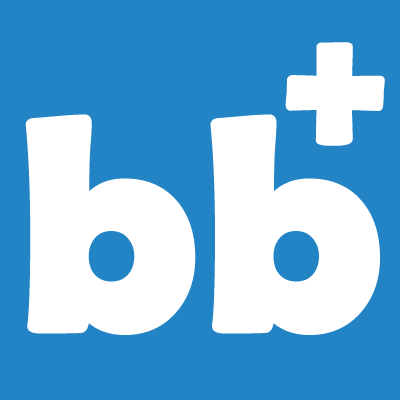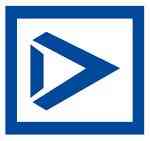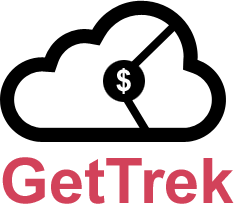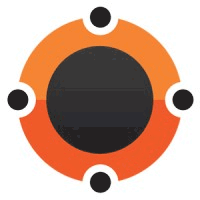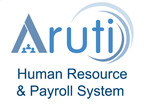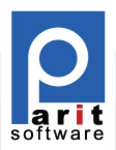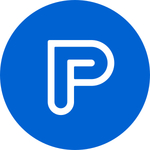Yes, most payroll software nowadays is designed to be available from a variety of devices and platforms. This means you can view your payroll information from any device with an internet connection, including your desktop, laptop, tablet, and smartphone. Employers and employees may now access payroll information from any location and at any time, providing them with greater flexibility and convenience. Furthermore, several payroll software companies include mobile apps for convenient access on the road.
List of 20 Best Payroll Software
BusinessBook Plus is a solution for Accounting & Inventory management. Its automated general transaction process simplifies operations, increases profitability, and saves valuable time on managing complex account books. Say farewell to complicated bo...Read More BusinessBook Plus
ClarityERP is a software developed by Datascan Information Systems, located in Pune, India. It is specifically designed to meet the requirements of manufacturing and trading businesses of small to medium size. Our solution offers a fully integrated a...Read More ClarityERP
Medlin Payroll: solution for hassle-free payroll management. Our user-friendly software takes the stress out of processing paychecks, with automatic tax calculations, customizable reports, and secure direct deposit options. Its the perfect tool for s...Read More Medlin Payroll
People Trak - the all-encompassing HR and payroll solution designed specifically for small and midsize businesses. With its comprehensive HR data, advanced reporting features, and simplified workflows, People Trak is your go-to software for managing...Read More People Trak
eSparsh HRMS is an innovative human resource management software offered by Sparsh Technologies Pvt Ltd, based in Bengaluru, India. Since 2000, we have been providing cutting-edge solutions to streamline and enhance HR processes. Boost your organizat...Read More eSparsh HRMS
Flightman is an aviation software that raises the bar for airline operations and improves flight performance. Its exceptional reputation among industry leaders stems from its ability to streamline tasks such as flight planning and crew management. Th...Read More Flightman
GetTrek-PayPro, the top choice for effortless payroll management for employers and employees. Our advanced Employee Self Service feature allows employers to boost productivity while employees can easily access and update their personal information. W...Read More GetTrek Payroll
PulseHRM is a HRMS and employee onboarding solution designed for organizations of all sizes. Powered by Oracle technology, this cloud-based software offers a modular structure that allows you to tailor your experience by starting with essential modul...Read More PulseHRM
sohamPay - the leading payment processing solution crafted for the insurance sector. Simplify your financial management with its efficient transaction process, secure payment gateways, and support for various currencies. The real-time transaction tra...Read More sohamPay
ConnX the payroll management solution. Say goodbye to late payments and manual tracking of employee information. With ConnX, streamline your payroll process with features like easy payment tracking, efficient leave management, and hassle-free updates...Read More ConnX
Aruti is HR and payroll management solution that automates employee management, recruitment, performance evaluations, and financial tasks. Its flexible and affordable modules can be customized to fit any business need, and its seamless integration en...Read More Aruti
Zenepal HR solution for businesses most time-consuming tasks. Designed in 2011, it caters to the changing labor laws in the UAE market. Our software is tailored with specific features to simplify and streamline the HR process for our valued clients...Read More Zenepal HR
PayrollPanda is a tool for streamlining your payroll processes. With its cutting-edge features, effortlessly generate monthly payroll, payslips, reports, and forms. Its seamless bank integration guarantees the effortless transfer of employee payments...Read More PayrollPanda
iTrent Payroll is a cloud-based solution for payroll management, HR management, recruitment management, and people analytics. This comprehensive software, designed for outsourced payroll, streamlines your entire payroll process. With its powerful fea...Read More iTrent Payroll
Dominion, the premier solution for all your payroll and HR needs. Tailored for businesses of any size, our comprehensive platform streamlines payroll processing, time tracking, and HR tasks. Spend less time on administrative tasks and focus on busine...Read More Dominion
HRMTHREAD, the premier web-based payroll software highly favored by over 5000 satisfied clients. With its advanced features, managing employee database and payroll has never been easier. Its user-friendly interface allows for smooth navigation and si...Read More HRMTHREAD
the PS-Lite Manufacturing ERP is a solution that simplifies your manufacturing processes, regardless of their complexity. This software seamlessly integrates all departments into a single platform, enabling efficient management of all aspects of your...Read More Parit Software
Payfit solution for effortless payroll management. Trusted by over 16,000 businesses, this innovative software eliminates the hassle of tedious tasks and seamlessly integrates with HR systems. Stay updated in real-time and bid farewell to payroll hea...Read More Payfit
Zil Money is a payment solution for businesses. With its cloud-based platform and an array of features including Pay by Credit Card, Check Printing, ACH, and Wire Transfers, Zil Money offers a seamless and efficient way to manage your finances. Say g...Read More Zil Money
Accent HRP, an advanced HR and payroll solution powered by ASP.NET and MS SQL. Ideal for medium and large enterprises, this cloud-based platform seamlessly manages employee data, payroll tasks, attendance and leave, hiring processes, performance asse...Read More Accent HRP
Learn More About Payroll Software
- What Is Payroll Software?
- What Are The Recent Trends In Payroll Software?
- Benefits Of Using Payroll Software
- Important Factors To Consider While Purchasing Payroll Software?
- What Are The Key Features To Look For In Payroll Software?
- Why Do Businesses Need Payroll Software?
- How Much Time Is Required To Implement Payroll Software?
- What Is The Level Of Customization Available In Payroll Software?
- Which Industries Can Benefit The Most From Payroll Software?
- Conclusion
What Is Payroll Software?
Payroll software is a technology instrument that simplifies and automates the process of computing and administering employee payroll. It is an essential component for businesses, particularly those with a large workforce, because it assures accuracy, efficiency, and compliance with payroll rules and regulations. Payroll software allows firms to quickly keep organized by entering and maintaining vital employee information such as salary, bonuses, taxes, benefits, and time off.
This avoids the aggravating and time-consuming effort of manually processing payroll, which can frequently result in errors and miscalculations. Furthermore, payroll software includes features like direct payment, computerized tax filing, and automatic deductions, making it a handy and secure choice for both companies and workers. It also delivers extensive data and analytics, which help organizations better understand their payroll spending and patterns.
When looking for payroll software, you should evaluate pricing, ease of use, customer support, and interfaces with other company tools. Buyers should also confirm that the software conforms with local and federal legislation and provides advanced security to protect sensitive employee information.
What Are The Recent Trends In Payroll Software?
The world of payroll software is continuously changing as new technology and business requirements emerge. As a buyer, you must stay up to date on the newest payroll software developments to ensure you are investing in the finest solution for your firm.
We'll explore the latest payroll software trends that are impacting the market and helping organizations streamline their payroll procedures.
1. Cloud-Based Solutions: One of the most significant changes in payroll software is the transition to cloud-based solutions. With the development of remote work and the necessity for flexible solutions, organizations are increasingly turning to cloud-based payroll software. These solutions have various advantages, including real-time access to data, enhanced collaboration, and cost savings.
2. Integration With HR And Accounting: Payroll software is no longer limited to payroll processing. Payroll software integration with HR and accounting systems is becoming increasingly popular, allowing firms to gain a more comprehensive view of their employee data and finances. This integration also increases data accuracy and decreases the possibility of errors.
3. Employee Self-Service Features: Another trend in payroll software is the introduction of employee self-service options. This enables employees to examine their pay stubs, request time off, and update personal information, lowering the administrative strain on HR and payroll departments. It also encourages transparency and allows employees to take control of their paycheck information.
4. Automation And AI: Automation and artificial intelligence (AI) are causing significant disruption in the payroll software sector. These solutions automate monotonous operations like data input and payroll computations, allowing HR and payroll professionals to focus on more strategic efforts. AI-powered solutions may also detect data patterns and trends, giving businesses vital decision-making insights.
5. Compliance And Security: With the ever-changing world of labor laws and data protection legislation, payroll software must address compliance and security concerns. As a result, many suppliers are now providing solutions with built-in compliance capabilities, such as automatic tax computations and safe data storage, to help organizations stay compliant while protecting sensitive employee information.
Benefits Of Using Payroll Software
Payroll software is an essential tool for every organization, large or small, that wants to optimize its payroll procedures and increase overall efficiency. With the advancement of technology, manual payroll methods are becoming obsolete and inefficient. Payroll software provides a comprehensive solution for automating payroll activities, making them more efficient, accurate, and hassle-free.
We'll go over the advantages of using payroll software so you can make an informed decision for your business.
1. Time-efficient And Cost-Effective: One of the most major advantages of employing payroll software is the possibility to save time and money. Manual payroll systems need a large amount of paperwork, manual calculations, and other repetitive tasks that take up a significant amount of time and resources. All of these procedures are automated using payroll software, freeing up HR and payroll teams' time to focus on other vital responsibilities. This not only saves time, but also lowers the likelihood of errors and costly payroll blunders.
2. Accuracy & Compliance Payroll: is a delicate area of any organization, and accuracy is critical to avoiding compliance and legal problems. Payroll software ensures accuracy by automating computations for tax deductions, benefits, and other payroll-related processes. It also assures compliance with local and federal regulations, reducing the likelihood of penalties or fines for noncompliance.
3. Digital Record-Keeping: Payroll software provides secure and centralized digital record-keeping for all payroll-related information. It eliminates the requirement for physical storage and provides simple access to previous information in the event of audits or employee inquiries. With cloud-based payroll software, all data is saved on the cloud, making it easier to access and reduces the risk of data loss.
4. Employee Self-Service: Employee self-service portals, which allow employees to examine their pay stubs, tax forms, and other vital payroll information, are common features of payroll software. This reduces the need for HR and payroll personnel to manually process employee requests, freeing up their time for other activities.
5. Integration With Other Systems: Payroll software can be integrated with other systems, such as accounting and time-tracking software, to ensure that data flows seamlessly between departments. This interface ensures precise and fast payroll processing, lowering the possibility of errors and anomalies.
Important Factors To Consider While Purchasing Payroll Software?
When looking for the best payroll software for your business, there are various variables to consider before making a purchase. With so many alternatives available, it might be difficult to select the ideal one for your personal needs.
Here are some crucial considerations to consider when selecting payroll software:
1. Capabilities And Functionality: One of the initial considerations should be the payroll software's capabilities and functionality. Make a list of the key services your company requires, such as tax computations, direct transfer, and time monitoring. Compare software options and select the one with the most relevant features for your business.
2. Scalability: The software you purchase should be able to grow alongside your company. As your firm grows, so will your payroll requirements. Consider your company's future expansion and ensure that the software can accommodate expanded employee numbers and new functionality as needed.
3. User-Friendly Interface: Payroll software should be simple to use, especially for non-technical personnel. A difficult or confusing interface might result in payroll problems and delays, which can be costly for your company.
4. Integration With Other Systems: If you are already using other HR, time and attendance, or accounting software, think about how the payroll software will work with those. Seamless integration can save you time and effort when entering data while also reducing the possibility of errors.
5. Security: Payroll contains important information that must be kept secure. Make sure the software you chose has strong security features in place to secure your company's and employees' confidential information.
6. Customer Help: Reliable customer help is essential in the event of any problems or questions. Look for software vendors who give many forms of customer assistance, such as phone, email, and live chat. Additionally, check reviews or ask for recommendations to assess the company's level of customer service.
7. Pricing: Consider the software's pricing structure, which may include monthly or yearly subscriptions, one-time purchases, or add-ons for additional capabilities. Choose software that meets your budget and offers good value for money.
8. Compatibility And Accessibility: Before purchase, make sure the software works with your current hardware and operating system. Also, evaluate if the software is cloud-based or on-premise, and select one based on your company's needs and preferences.
What Are The Key Features To Look For In Payroll Software?
The major elements to look for in Payroll Software are critical for any organization that wants to optimize its payroll process. Payroll software has become an essential tool for managing employee compensation and assuring compliance with tax rules and regulations, ranging from small businesses to major enterprises.
1. Automated Payroll Processing: The most significant aspect of any payroll software is its capacity to automate the payroll process. This includes precisely and efficiently calculating employee wages, taxes, and deductions, which saves time and eliminates human mistake.
2. Tax Compliance: Tax laws and regulations are always changing, and it can be difficult for businesses to stay up. Look for payroll software that keeps up with these changes and assures compliance with federal, state, and local taxes.
3. Employee Self-Service: A user-friendly portal that allows employees to view pay stubs, tax paperwork, and update their personal information can save time for both employees and HR personnel.
4. Time And Attendance Tracking: Payroll software with time and attendance tracking capabilities can assist organizations in precisely tracking employee hours, breaks, and overtime, removing the need for manual timekeeping and lowering payroll errors.
5. Customisable Reporting: The option to create customisable reports can provide useful insights into your company's payroll expenditures and aid in budgeting and forecasting for future expenses.
6. Integration With Accounting Software: To streamline procedures and eliminate repetitive data entry, search for payroll software that works flawlessly with your current accounting software.
7. Direct Deposit: Direct deposit is a must-have feature for any modern payroll software due to the ease it provides to employees and the elimination of the need to print and ship paper checks.
8. Mobile Access: With the advent of remote work, having a mobile app or a mobile-friendly interface can help organizations manage payroll on the go, making it easier to process payroll for employees who work outside the office.
9. Secure Data Management: Because sensitive employee information is kept and processed, it is critical to select payroll software that emphasizes data security, including data encryption, secure backups, and access limits.
10. Customer Assistance: Finally, make sure that the payroll software you chose has dependable customer assistance to assist with any technical issues or questions that may arise. Look for phone, email, and chat help with extended hours for emergencies.
Why Do Businesses Need Payroll Software?
Payroll software is an indispensable tool for organizations of all sizes and sectors. The ever-changing world of payroll regulations makes it increasingly difficult for firms to manage their payroll operations manually. However, payroll software provides a comprehensive solution for streamlining payroll procedures while ensuring accuracy and compliance. First and foremost, payroll software allows organizations to automate their payroll operations, which increases convenience and efficiency.
This saves HR and finance teams a significant amount of time, allowing them to focus on more critical elements of the business. Payroll software removes the danger of human error by automating operations like calculating employee salaries, taxes, and deductions, ensuring that your employees receive correct and timely payments. Furthermore, manual payroll systems are prone to errors, which can result in significant penalties and compliance difficulties for firms.
However, payroll software is designed to keep up with the most recent tax laws and regulations, assuring compliance and avoiding potential penalties. Furthermore, payroll software allows firms to manage employee data in a more efficient and structured manner. Payroll software centralizes all employee information in one safe area, making it conveniently accessible and decreasing the risk of data loss or misuse.
This includes tracking attendance and leave as well as maintaining records of wage adjustments and benefits.Furthermore, payroll software includes comprehensive reporting and analytics capabilities, giving organizations important insights into their payroll data. These statistics, which range from labor cost analysis to employee attrition rates, can assist firms in making more informed decisions and improving overall financial management.
Last but not least, many payroll software providers offer extra services such as direct deposit, employee self-service portals, and mobile access, making the entire payroll process more effective and comfortable for both employers and employees.
How Much Time Is Required To Implement Payroll Software?
The implementation time for payroll software varies depending on several aspects, including your company's size, the complexity of your existing payroll processes, and the software's functionality. However, it typically takes between 4 and 12 weeks to properly implement payroll software. During the initial step, you will need to gather and organize your employees' personal information, wage details, and tax information.
This could take a few days or weeks, depending on the size of your organization. Next, configure the software to meet your company's specific payroll requirements. This includes establishing pay schedules, rates, tax calculations, deductions, and perks. This stage can take anywhere from 2 to 4 weeks, depending on how sophisticated your payroll systems are.
Once the software has been tailored to your specifications, you will need to undertake testing and training sessions for your payroll team to ensure they are familiar with the software and its features. This could take another two or three weeks. Following the testing and training phases, it is time to go live with the program and begin processing payruns. This usually takes between one and two weeks, during which time any problems or inaccuracies can be detected and corrected.
Overall, the implementation of payroll software can take 4 to 12 weeks. However, it is crucial to remember that this timescale might vary depending on specific circumstances, and it may take longer if you have a large firm with sophisticated payroll systems. It is usually best to talk with your software vendor and set a realistic schedule to guarantee a smooth and effective implementation.
What Is The Level Of Customization Available In Payroll Software?
The level of flexibility available with payroll software varies substantially depending on the software chosen. Most payroll software provides a high level of flexibility, allowing you to adjust it to your company's unique needs and requirements. The type of software you choose, whether cloud-based or on-premise, is an important issue to consider when determining the level of customization.
Cloud-based payroll software often provides more flexibility and customization possibilities because it can be accessed from any location and readily updated to meet changing demands. On-premise software, on the other hand, may have greater constraints and necessitate additional customisation services from the provider. In terms of customization, payroll software often allows you to add and remove employee information, set up numerous payment schedules, and create various earning and deduction types.
This amount of versatility enables you to tailor the software to your specific payroll needs, regardless of whether you have paid or hourly staff. Some payroll software also has customisable reporting features, allowing you to create thorough reports on many areas of your payroll, such as tax compliance, employee hours, and payroll costs. This is especially handy for larger businesses that have more sophisticated payroll requirements.
Furthermore, many payroll software companies provide add-ons or connections with other software, such as accounting or HR systems, which can expand the customization choices accessible to you. It is critical to thoroughly assess the level of customization provided by various payroll software alternatives to ensure that they match your needs. Some may provide more complex customisation possibilities at a higher cost, so evaluate your budget and needs before making a pick.
Which Industries Can Benefit The Most From Payroll Software?
Payroll software is a valuable tool for organizations of all sizes, but some industries might benefit even more from its features and capabilities.
The following industries can benefit the most from payroll software:
1. Small firms: Payroll management can be time-consuming and difficult for small firms due to limited resources and staff. Payroll software can help small businesses save time and money that can be put to better use in other areas of their operations.
2. Retail And Hospitality: These industries have high employee turnover rates, making payroll a complex and time-consuming task. Payroll software allows businesses to effortlessly track employee hours, calculate overtime, and precisely process payments, ensuring that their employees are paid correctly and on time.
3. Healthcare: The healthcare industry has stringent laws and compliance requirements for employee salaries and benefits. Payroll software's automated calculations and reporting tools can assist healthcare firms in remaining compliant and avoiding costly mistakes.
4. Construction: The construction business sometimes involves several projects and subcontractors, making the payroll process complicated and prone to errors. Payroll software can manage several job classifications, pay rates, and tax obligations, making it the best option for managing payroll in this market.
5. Nonprofit Organizations: Because NGOs rely significantly on donations and grants, they must keep detailed records of all of their spending, including payroll. Payroll software can generate precise reports and manage spending, ensuring that NGOs use their finances effectively and transparently.
6. Professional Services: Professional service businesses, such as legal firms and accountancy firms, frequently deal with numerous pay rates, commissions, and incentives. Payroll software can manage these complex payroll calculations accurately, lowering the likelihood of errors and anomalies.
Conclusion
Finally, investing in the correct payroll software for your company can make a significant difference in how you manage employee payroll. As previously noted, there are several aspects to consider while selecting the appropriate software, including your company's size, budget, features, and support options. Furthermore, make sure to thoroughly research and evaluate various possibilities, read reviews, and take advantage of free trials to ensure that you are making an informed choice.
It is also critical to involve your staff in the choosing process, as they will be the ones that use the program on a regular basis. Remember that the correct payroll software should not only streamline your payroll procedures, but also save you time, money, and effort in the long term. It should also be able to support your company's expanding and changing payroll requirements.
We hope that this buyer's guide has provided you with useful information and thoughts to assist you make the best option for your company. With the appropriate payroll software, you can streamline your payroll operations and focus on what's most important: expanding and managing your business.
Payroll Software FAQ's
Can Payroll Software Be Accessed Across Multiple Devices And Platforms?
Is Payroll Software Future-Proof And Adaptable To Emerging Technologies Like AI, Blockchain Or IoT?
Yes, current payroll software is intended to be future-proof and adaptive to new technology. Payroll software has evolved to incorporate AI, blockchain, and IoT as these technologies become more widely used in business. This enables the efficient and correct processing of employee payments, tax calculations, and compliance with changing legislation. Furthermore, innovative features like automated deductions and approvals help streamline operations and make payroll management easier for organizations.
Is There A Free Trial Offered To Assess Payroll Software Before Committing?
Yes, many payroll software vendors provide a free trial time for consumers to evaluate the software before making a purchase. This allows potential customers to test the software's features and functionality firsthand and assess whether it satisfies their business requirements. Free trials often last 14 to 30 days and may require users to give personal or company information before receiving access. Take advantage of this offer to make an informed business decision.
Does Payroll Software Offer Data Security Features And Meet Regulatory Compliance Standards?
Yes, payroll software has data security measures and adheres to regulatory compliance norms. This ensures that sensitive employee data, such as social security numbers and salary information, is securely maintained and accessible only to authorized individuals.
Furthermore, reliable payroll software vendors follow established regulatory standards, such as GDPR and HIPAA, to safeguard personal information and ensure data privacy. This ensures the security and confidentiality of your company's payroll information.
Can Payroll Software Integrate Seamlessly With Existing Tools And Platforms?
Yes, most modern payroll software are designed to be compatible with various tools and platforms, ensuring seamless integration with your existing systems. Features such as API integration and data sync allow for real-time and accurate sharing of information between the payroll software and other applications. This not only saves time and effort but also minimizes the risk of errors and allows for better workflow management.

